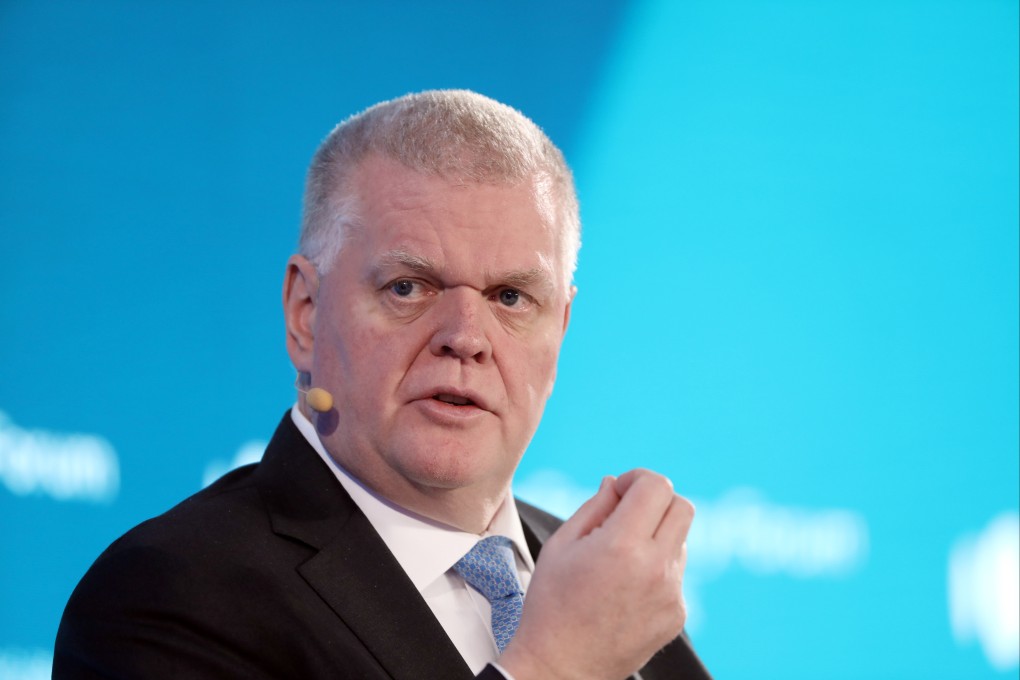Advertisement
HSBC CEO rebukes comments on climate change by top banker, says they are ‘inconsistent’ with lender’s strategy
- HSBC CEO Noel Quinn said comments by a top banker in its asset management business were ‘inconsistent’ with its strategy
- Comments by Stuart Kirk, the global head of responsible investing at HSBC Asset Management, at a conference last week drew fire from climate activists
Reading Time:3 minutes
Why you can trust SCMP
2

HSBC CEO Noel Quinn has publicly rebuked comments on climate change by a top banker in the lender’s asset management business, saying they are “inconsistent” with its strategy and the views of its senior leaders.
Advertisement
Quinn’s comments came in response to a presentation that Stuart Kirk, the global head of responsible investing at HSBC Asset Management, made at a Financial Times conference last week.
Kirk, a former FT journalist and Deutsche Bank banker, criticised the financial industry and central bankers for placing too much emphasis on the financial risks of environmental change, reportedly saying climate change was not a “financial risk we need to worry about” and “there’s always some nut job telling me about the end of the world”.
“Given our global reach and capabilities, we have an obligation to lead. I want HSBC to be a leader in supporting our clients, the finance sector and others through the massive transformation that’s needed to build a better future,” Quinn said in a LinkedIn post. “We have a lot of work to do, and I am determined that our team won’t be distracted by last week’s comments.
HSBC, one of Hong Kong’s three currency-issuing banks, has tried to position itself as a leader on addressing climate change, pledging to provide up to US$1 trillion in transition financing and investment to clients by 2030 as it seeks to reduce financed emissions in its portfolio to net zero by 2050.
Advertisement

Advertisement
